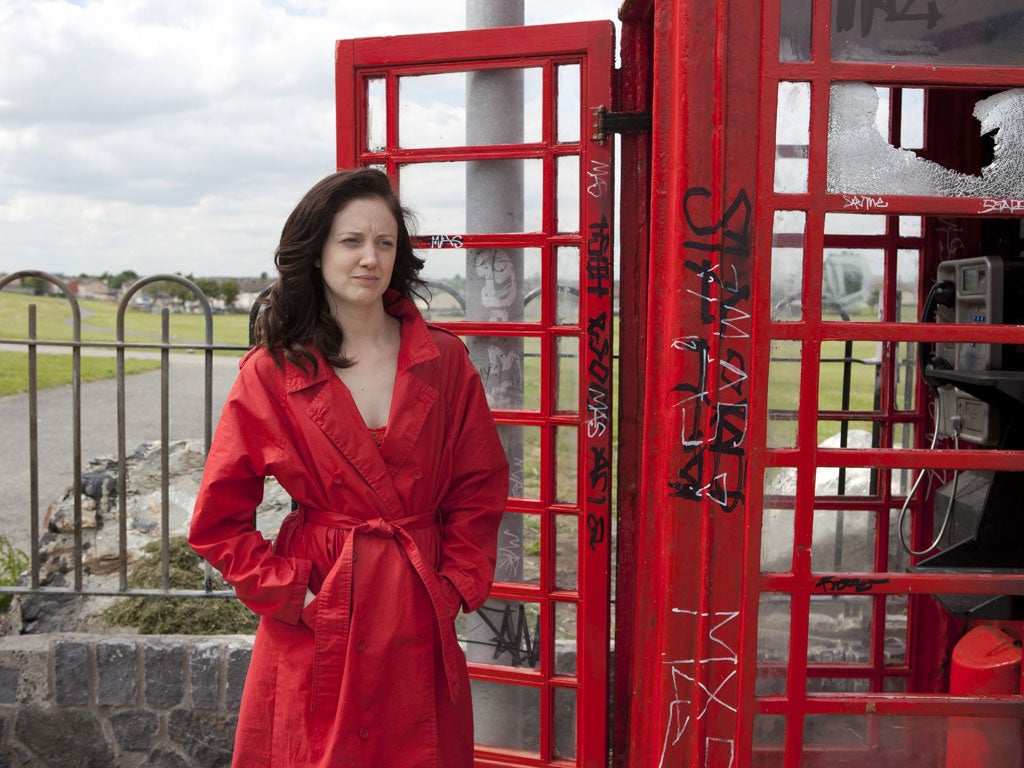Anglo-Irish conflict drama hits the target

During the Troubles in Northern Ireland, many films were made chronicling the violence, bloodshed and split loyalties. Long before being let loose in the Olympic Park, Danny Boyle produced one of the best, Alan Clarke's Elephant – a short film shot in a realist, matter-of-fact style, consisting of a series of murders. Others from Neil Jordan to Ken Loach, from Terry George to Jim Sheridan, directed movies addressing the conflict. James Marsh's absorbing and very well-crafted Shadow Dancer, set in Belfast in 1993, is different.
Marsh has made a thriller in which ideology is largely pushed into the background. Shadow Dancer is adapted from the novel by Tom Bradby, political editor for ITV News who was a Northern Ireland correspondent in the 1990s. Bradby, who also wrote the screenplay, has talked of his efforts to "drain all the politics out". At the core of the film is the suppressed romance between a Belfast single mum and IRA sympathiser Collette McVeigh (Andrea Riseborough) and an English MI5 officer Mac (Clive Owen). He is trying to run her as a double agent, informing against her own family, many of whom are IRA members. Their attraction for one another is self-evident. So is their mutual antipathy. He uses crude emotional blackmail to get her to spy on those closest to her. If she doesn't, she is threatened with prison and separation from her young son.
Marsh, who won an Oscar for his documentary Man on Wire, recreates the Belfast of the 1990s (and, in one shocking early sequence, of the 1970s) in painstaking detail.
There is a war being waged, but much of the film unfolds in cramped kitchens and dreary car parks. The red mac that Colette wears provides a rare touch of colour in a grey landscape.
The film-makers go out of their way to be even-handed. On the British side, there is the MI5 boss Kate Fletcher (played with icy geniality by Gillian Anderson). She is a wife and mother who blithely gives orders that will result in families being ripped apart. Her loyalty to her informers doesn't stretch very far at all. She is mirrored by David Wilmot's IRA leader, who dresses like a geography teacher, but is ruthless.
One of the film's strengths is its cast of redoubtable characters , among them Aiden Gillen as Collette's brother Gerry and Brid Brennan as her long-suffering Ma. We're made aware that anyone could be an informer.
The film is set in a period during which the two sides are already communicating. The Downing Street declaration and the IRA ceasefire are only months away. Nonetheless, Marsh shows how entrenched both sides have become in their behaviour. Riseborough excels as the woman caught between them. She conveys her character's mix of toughness and vulnerability as well as her pragmatism.
There are some corny moments along the way, especially in the scenes between Riseborough and Owen. A closely focused study of loyalty and betrayal risks veering off in the direction of melodrama as the MI5 man and his informant arrange their secret trysts.
What lifts Shadow Dancer is Marsh's flair for set-pieces. Whether the accidental killing of a kid in Belfast in the early 1970s or the riveting sequence in which an IRA volunteer is shown being apprehended on a mission in London, the film is full of moments in which the tempo quickens and there is a rush of emotional urgency.
Join our commenting forum
Join thought-provoking conversations, follow other Independent readers and see their replies
Comments
Bookmark popover
Removed from bookmarks